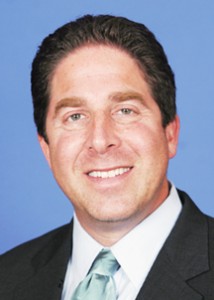
Nothing gets critics of school choice and education reform more riled up than the specter of privatization. The response from Rick Hess: It’s complicated. For-profits in education can bring problems, he says. But they can also be a big help.
Hess, director of education policy studies at the American Enterprise Institute, is co-editor (along with Michael B. Horn of the Christensen Institute) of a new book on the subject, “Private Enterprise and Public Education.” He’ll be our guest next week, in a live chat, to talk about it.
“Of course, the record of private ventures in education, as in other sectors, is mixed. It’s no wiser to romanticize for-profit providers than to demonize them,” says the book’s introduction. But, it continues, “For-profit enterprises have brought innovative power to an array of sectors. Given sensible policies and quality-control mechanisms, the particular strengths of for-profits can make them an invaluable part of the education tapestry.”
The chat isn’t limited to the book. Among many other hats, Hess is executive editor of EducationNext and author of the “Straight Up” blog at Education Week. He frequently weighs in on a wide range of ed topics, and doesn’t fit neatly into anybody’s ed reform box. So, ask away.
It’ll help to send some questions in advance. You can post them here, or on the redefinED facebook page, or tweet them to us @redefinedonline.
To participate in the chat, just come back to the blog on Monday, Sept. 9 at 1:30 p.m. You’ll have a full hour to ask away.



For Rick Hess: We hear a great deal about improving “STEM education”, but in its recent review of the Next Generation Science Standards the Fordham Institute said, “most states already have full plates of education reforms that are plenty challenging to implement, often including the Common Core State Standards for English language arts and math. Before undertaking any major change in their handling of science education, state leaders would be wise to consider whether they have the capacity to accomplish this in the near term, too.” My question is this: Should we take Fordham’s advice and defer improvements in science education until we have solved the challenges of student achievement in the Common Core disciplines – math and English language arts?
Paul, this is a great question. I will put it on the list for Rick.
Great teachers mean everything, yet our schools struggle to attract strong math and science students into teaching. What can our school systems – and universities – do to attract more strong mathematicians and scientists into K-12 teaching?
Paul, thank you. I’ll put this one on the list too.